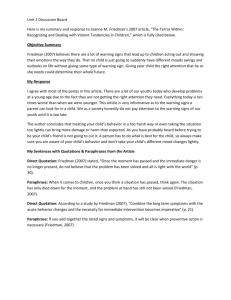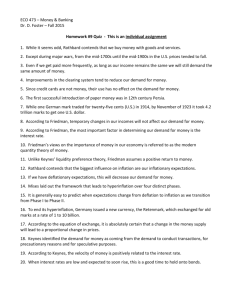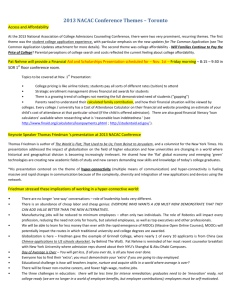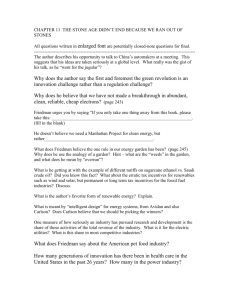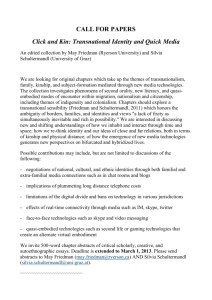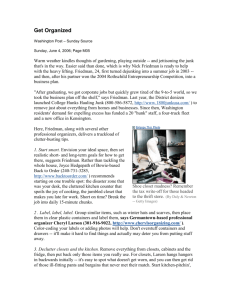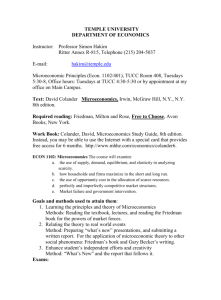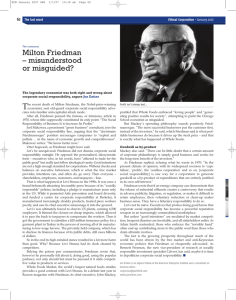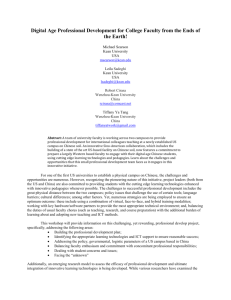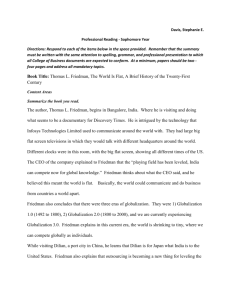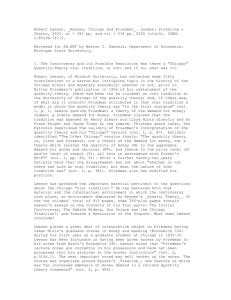Chapter 1
advertisement
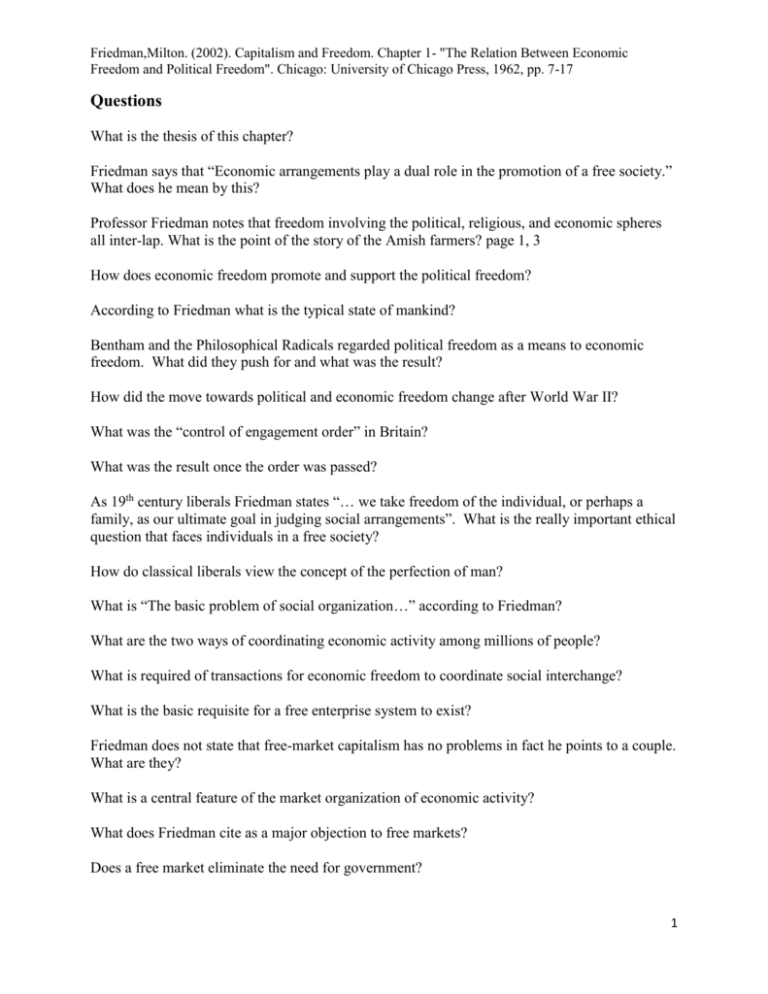
Friedman,Milton. (2002). Capitalism and Freedom. Chapter 1- "The Relation Between Economic Freedom and Political Freedom". Chicago: University of Chicago Press, 1962, pp. 7-17 Questions What is the thesis of this chapter? Friedman says that “Economic arrangements play a dual role in the promotion of a free society.” What does he mean by this? Professor Friedman notes that freedom involving the political, religious, and economic spheres all inter-lap. What is the point of the story of the Amish farmers? page 1, 3 How does economic freedom promote and support the political freedom? According to Friedman what is the typical state of mankind? Bentham and the Philosophical Radicals regarded political freedom as a means to economic freedom. What did they push for and what was the result? How did the move towards political and economic freedom change after World War II? What was the “control of engagement order” in Britain? What was the result once the order was passed? As 19th century liberals Friedman states “… we take freedom of the individual, or perhaps a family, as our ultimate goal in judging social arrangements”. What is the really important ethical question that faces individuals in a free society? How do classical liberals view the concept of the perfection of man? What is “The basic problem of social organization…” according to Friedman? What are the two ways of coordinating economic activity among millions of people? What is required of transactions for economic freedom to coordinate social interchange? What is the basic requisite for a free enterprise system to exist? Friedman does not state that free-market capitalism has no problems in fact he points to a couple. What are they? What is a central feature of the market organization of economic activity? What does Friedman cite as a major objection to free markets? Does a free market eliminate the need for government? 1 Friedman,Milton. (2002). Capitalism and Freedom. Chapter 1- "The Relation Between Economic Freedom and Political Freedom". Chicago: University of Chicago Press, 1962, pp. 7-17 What role should government play in a free market, and how vigorously should play it? How is diversity enhanced through market change? What is the fundamental threat to freedom? Why does Friedman argue we should separate economic power from political power? Friedman states that economic power to be widely dispersed the political power tends to become concentrated. What is his argument? What problems are created in a socialist society where jobs are under direct political control? 2

